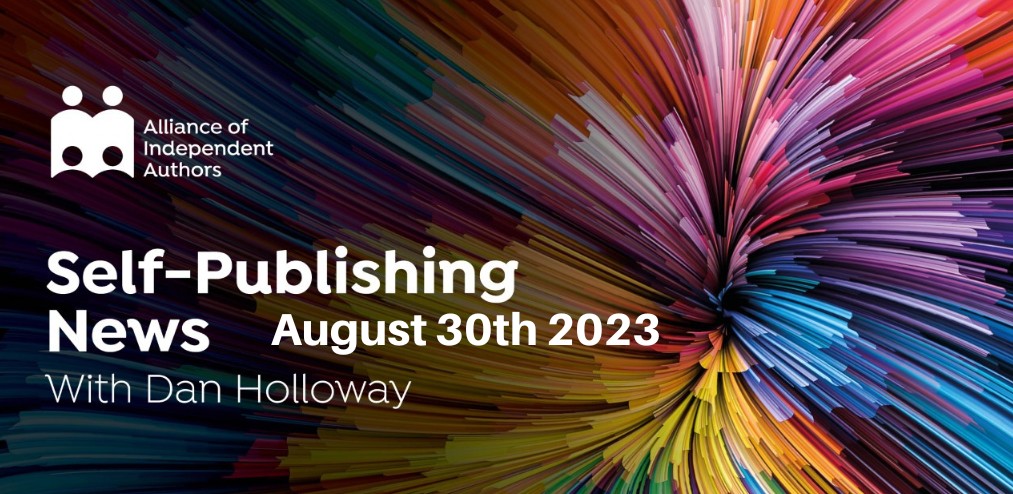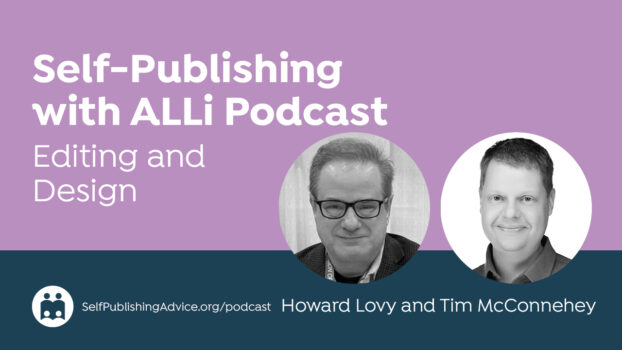In this week's Self-Publishing News, ALLi News Editor Dan Holloway takes a look at what the European Union's Digital Services Act means.

ALLi's News Editor Dan Holloway
Do have a listen to the new self-publishing news podcast. Howard and I have been talking about the way the legal cases that are being brought against Open AI, as well as the FTC investigation. We've also been considering whether Meta's new Threads social media platform will be a viable alternative to Twitter.
The EU’s Digital Services Act is Here. What does it Really Mean?
I have reported on the EU’s Digital Services Act before. This week, though, the DSA became law. And people are starting to talk more widely about what it means for the services we use every day and how we use them.
There are two elements of the new legislation that directly impact us as indies. The first surrounds what the DSA designates Very Large Online Platforms (VLOPs). VLOPs face a requirement for vastly increased transparency. And that applies particularly to adverts. This is where Amazon comes in. What matters for those of us who use, and in particular advertise on, Amazon is that people are entitled under the DSA to know who is advertising to them. That sounds great. It avoids nefarious actors passing themselves and their products off as something they are not.
But, when Amazon suggested what new advertising policies based on the requirement would look like, authors got very nervous. The DSA requires VLOPs to display information on who is posting adverts. And that means, for authors, a real name associated with the advertising account. Crucially, it would mean not a pen name. Think of it as a commercial version of the dilemma that those who had very good reason to keep their identity secret faced when social media platforms started getting strict about the use of legal names.
Amazon has responded by negotiating a temporary opt out. In a move that can only be described as surprising-but-not-surprising, they claim they are not, in fact, a Very Large Online Platform. My natural response is to say good luck with that! I will, of course, keep you posted.
Meanwhile, a second consequence of the DSA is that social media platforms will have to offer people the right to an algorithmic opt out. That means they can choose to have their feed presented in a way that does not “optimize” (read, “suit the advertisers”) what they see. Instead, if they opt out of algorithmic presentations, users will see posts from those they follow in chronological order.
Hidden Figures: the Ongoing Saga of Ebook Sales
Every time official sales figures come out, they serve as a reminder of how incomplete official sales figures are. And how indies are excluded from them. Because many of the ebooks we sell simply don’t feed the official statistics. This is such a “yes we know” issue that I avoid making a thing of repeating it. But from time to time, it’s worth a reminder. This week, Mark Williams has done one of his occasional coruscating hatchet jobs on the state of stats. And it provides a very good opportunity for such a reminder.
Williams points out a crucial reason why we need to remember what the official figures don’t include. That’s because any conclusions we might draw from those figures are extremely tenuous. But not everyone treats them as such. In particular, the June figures from the Association of American Publishers show a 3.9% year-on-year decrease in ebook sales. And a 1.3% decrease in sales in the first half of 2023.
So ebook sales have plateaued? Even started falling? Taking indie ebooks into account, Williams argues things look somewhat different. As just one indicator, he lists the increase in KDP Select payout pots. July 2023 shows a 10% increase over 2022. And the pot has doubled since 2019. Hardly a sign that ebooks are struggling.
Wattpad's Parent Company, Naver, Updates its Generative AI
And of course, it wouldn’t be news without there being some mention of AI.
This week the main AI news is a variation on the usual “this is what the law courts and scandal sheets have to offer us now.” But I start with a link to a fascinating piece that TechCrunch have put together that gives a potted history of ChatGPT, from the launch of version 3.5 last year to the present day. It’s a great way to orient yourself in the conversation.
But what’s of particular interest this week is the announcement of new generative AI tools from South Korean internet giant Naver. This includes Hyperclova X, a large language model AI that will be available for creators. One of the things that makes this interesting is that Naver owns Webtoon. And sitting under Webtoon is Wattpad. It’s one of those clusters that could lead to some interesting results.
First Book Ninja Summit
Crave Books will be holding its first Book Ninja Summit on October 7th, online. The event has a strong marketing focus, with sessions covering a wide variety of marketing topics that matter to indies. And it has a great line-up of speakers, including our own Michael La Ronn.
The EU's Digital Services Act is here, and other top #selfpub news stories for #indieauthors, in one quick read, by #ALLi News Editor Dan Holloway @agnieszkasshoes #digitaleconomy #publishingopenup Share on X




Presumably, this will only affect Amazon ads within the EU. So indies advertising in the UK or anywhere outside of the EU would not be affected.